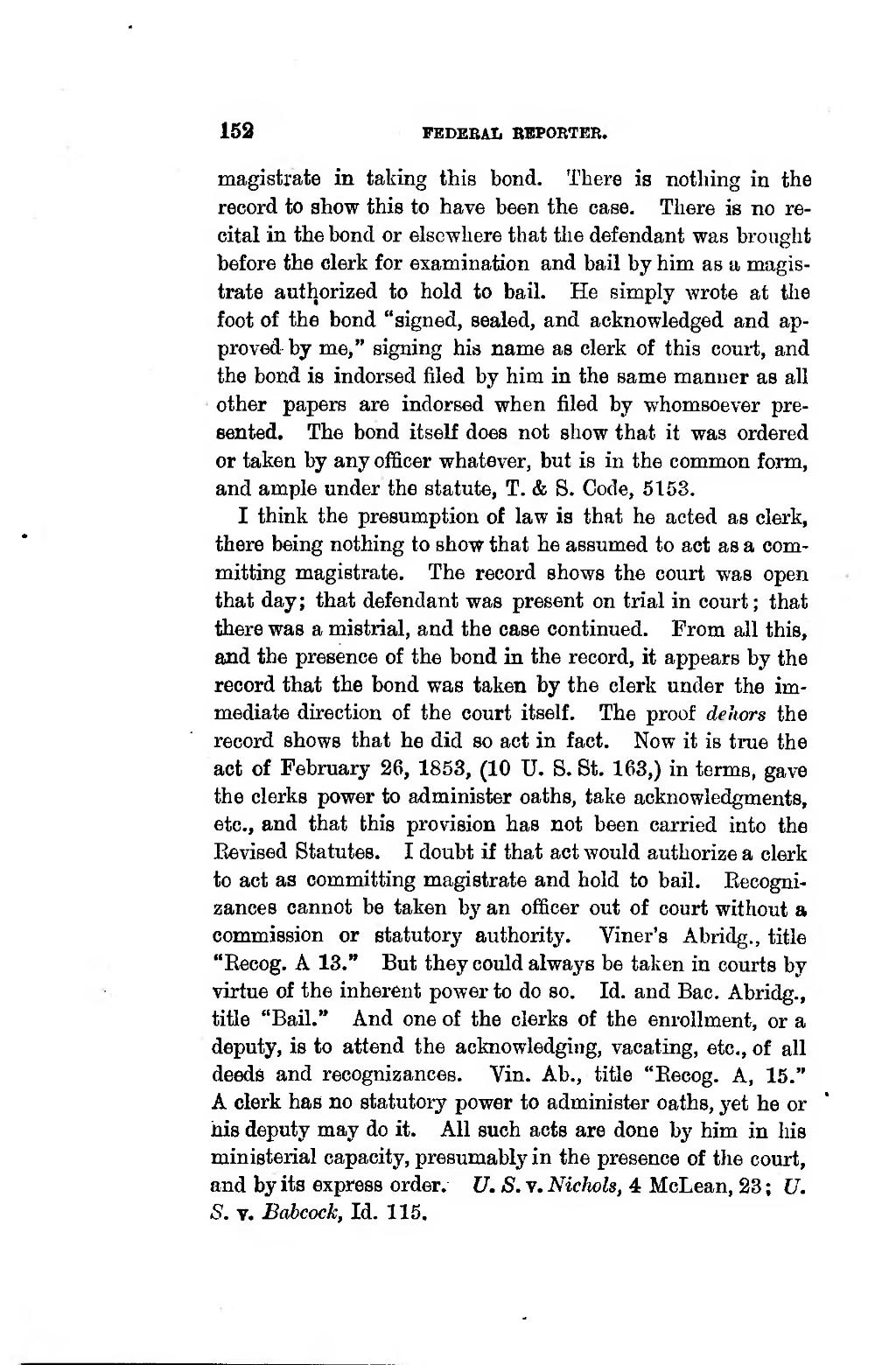153 PEDEBAIi BEPORTEK. �magistrate in taking this bond. There ia notliing in the record to show this to bave been the case. There is no re- cital in the bond or elsewhere that the defendant was brought before the clerk for examination and bail by him as a magis- trate authorized to hold to bail. He simply wrote at the foot of the bond "signed, sealed, and aoknowledged and ap- proved by me," signing his name as clerk of this court, and the bond is indorsed filed by him in the same manuer as ail other papers are indorsed when filed by -whomsoever pre- sented. The bond itself does not show that it was ordered or taken by any officer whatever, but is in the common form, and ample under the statute, T. & S. Code, 5153. �I think the presumption of law is that he acted as clerk, there being nothing to show that he assumed to act as a com- mitting magistrate. The record shows the court was open that day ; that defendant was present on trial in court ; that there was a mistrial, and the case continued. Prom ail this, and the presence of the bond in the record, it appears by the record that the bond was taken by the clerk under the im- mediate direction of the court itself. The proof dehors the record shows that he did so act in fact. Now it is true the act of February 26, 1853, (10 U. S. St. 163,) in terms, gave the clerks power to administer oaths, take acknowledgments, etc., and that this provision has not been carried into the Eevised Statutes. I doubt if that act would authorize a clerk to act as committing magistrate and hold to bail. Eecogni- zances cannot be taken by an officer out of court without a commission or statutory authority. Viner's Abridg., title "Eecog. A 13." But they could always be taken in courts by virtue of the inherent power to do so. Id. and Bac. Abridg., title "Bail." And one of the clerks of the enrollment, or a deputy, is to attend the acknowledging, vacating, etc., of ail deeds and recognizances. Vin. Ab., title "Eecog. A, 15." A clerk has no statutory power to administer oaths, yet he or his deputy may do it. AU such acts are done by him in his ministerial capacity, presumably in the presence of the court, and by its express order. U. S. v. Nichols, 4 McLean, 23 ; U. S. V. Babcock, Id. 115, ����
